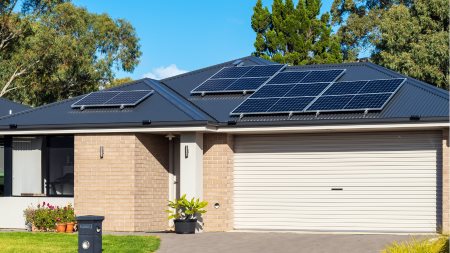Policy review
Last year, the country experienced some 6,950 hours of load shedding, claims Statista. As a result, households sought to find solutions, both permanent, such as full solar, and temporary, like inverters and batteries. From purely the solar perspective, this resulted in a tripling of the country’s imports of solar panels, to the tune of some R17.5-billion. When you throw into this mix the imports of inverters and batteries, that value rises to R70-million.

While some believe the recent government announcement about policy changes regulating these systems is related to the large sums of money generated by such imports, the truth is that it was the competitions commission that suggested a policy review. This organization, noting the higher import figures, conducted a survey on the use of solar panels, inverters, and batteries by households and businesses. It determined that while access to energy has improved, barriers remain to securing renewable energy sources, and consumers need better protection.
The suggested changes made by the competitions commission to the department of trade, industry and competition (DTIC) are vast, aimed at addressing safety and quality standards, incentives, storage solutions, and more. These include:
- Standardizing equipment quality.
- Mandatory certification of installers and product quality standards to protect consumers.
- Mandatory registration of inverters, batteries, and solar installations to ensure systems meet safety and quality standards.
- Promoting localization and incentivizing the growth of local manufacturing capacity of renewables.
- Introducing financial incentives for lower-income households and small businesses to access renewables.
- Investigating excessive pricing and possible collusion among suppliers.
- Encouraging consumers to buy local and be informed when making purchase decisions.
- Possible tax rebates, subsidies, and other financial assistance programs.
- Stricter regulations on how excess energy is fed into the grid and compensation models.
- Addressing environmental concerns related to energy storage systems and the disposal of batteries.
Solar power: the government's energy action plan
With the intensity of load shedding reduced this year (though no one promises it won’t return), the interest in residential solar installations, inverters, and batteries may lessen. However, the country needs to reduce its dependency on coal-fired power stations, as 85% of the national grid is powered by fossil fuels.
Solar power is seen as the catalyst for change, as pointed out in the government’s energy action plan. In its 2023 progress report, the government claimed that rooftop solar capacity increased to over 4,000 MW, helping reduce load shedding over the 2023 winter season.
In addition, the government introduced a tax incentive for solar installations and a revised bounce-back loan scheme to help small businesses go solar. Any excess power generated could be sold to the national grid in certain areas. These initiatives are some of the major reasons why rooftop solar installations more than doubled in 2022-2023.
Municipalities and energy for the poor
Addressing energy for lower-income households remains a challenge. Municipalities must follow the free basic alternative energy policy, which instructs local councils to supply alternative sources of energy to households not connected to the grid. Solar energy is an alternative to coal, LPG, bio-ethanol gel, and paraffin, which are recommended to these councils. To date, nearly 150,000 solar installations have been provided to homes without grid connections.

Overall, any policy changes regarding solar, inverters, and batteries should be welcomed. The recommendations offer strong stepping stones towards a more reliable and sustainable energy future for all South Africans.




